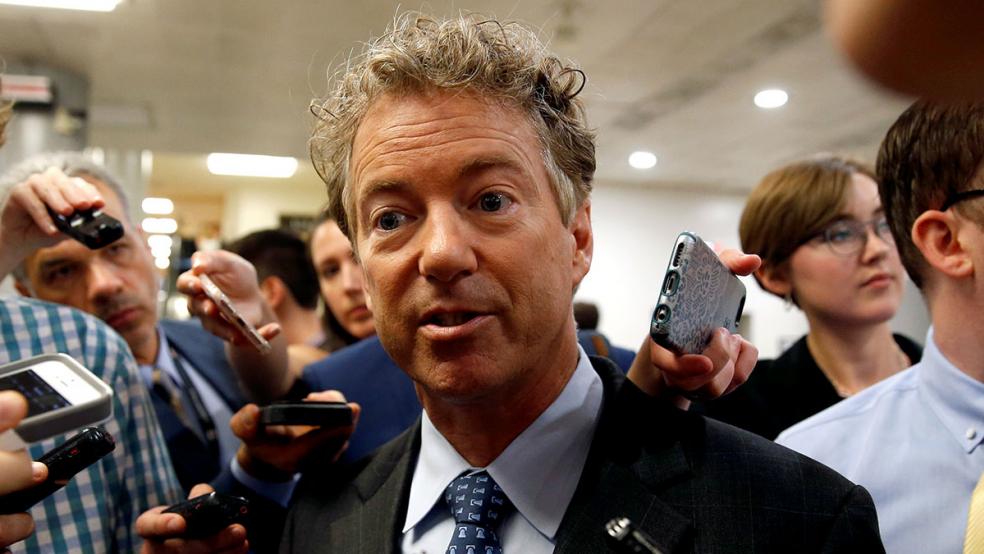The big task for Senate Majority Leader Mitch McConnell over the coming few days (if we’re being optimistic) or months (if we’re not) will be striking a balance between the most conservative members of the Senate GOP and the more moderate members on proposed legislation to repeal and replace the Affordable Care Act.
The right wing of the Senate GOP wants to see a more forceful repeal of the Affordable Care Act, including regulations, mandates and even provisions meant to prevent people from gaming the system by only buying insurance after they become sick. The more moderate members, by contrast, want to preserve many elements of the ACA, including generous subsidies and the expansion of Medicaid to childless adults living below the poverty line.
Related: Why State Governors Are Freaking Out About the GOP Health Plan
The problem is that pleasing one side is likely to make the other even more dissatisfied, and right now both factions have more than enough votes to prevent the Senate’s Better Care Reconciliation Act from coming up for debate, much less being voted on.
Late Tuesday, Kentucky Sen. Rand Paul, who has been one of the most vocal members of the conservative opposition to the bill, presented McConnell with a letter describing changes he would like made to the bill. While the letter wasn’t an explicit promise of support in exchange for the specific alterations to the bill, it appeared to outline what Paul views as a path forward.
Among the requests:
Association plans. Paul wants to allow individuals to band together in groups to buy coverage. The Senate bill already allows this for self-employed people, but Paul would like to see it expanded to everyone.
In addition, he wants the associations to be eligible for self-insurance -- a risky but potentially beneficial arrangement usually reserved for large employers. He also calls for the elimination of ACA regulations and the restoration of previous, less onerous rules on the group market.
Risk sharing. A key element of the ACA was the government’s agreement to protect insurance companies from outsized losses if they participated in the health insurance exchanges it created to serve the uninsured. It also offered compensation for policies that provided below-market rate premiums to low income consumers.
Related: Here Are Five Reasons Why the GOP’s Health Bill is Doomed
Paul, like many Republicans, derides all such payments as a “bailout” for the insurance industry and demands that they be ended.
Tax credits. While may Republicans, like Paul, are opponents of the ACA’s system of subsidies meant to help low income consumers purchase health care, his letter to McConnell falls short of eliminating them. Instead, he takes the somewhat puzzling tack of asking McConnell to “reconsider the advanced, refundable nature of this entitlement.”
It’s unclear what the purpose of that particular request is. The advanced, refundable structure of the credits is what makes it possible for low income Americans to purchase insurance policies. The letter does not explain the rationale for requesting their “reconsideration.”
Continuous coverage. A late addition to the BCRA was a provision mandating a six-month waiting period for new insurance for anyone whose coverage lapses. The idea is to prevent free riders from gaming the system by not paying for insurance until they get sick and need coverage.
Paul objects to this as a continuation of a “top-down approach that has led to increased premiums and has not changed behavior of the young and healthy who are priced out of the market, and those who game the system to purchase insurance after they become sick.”
He suggests instead that insurance companies bear the responsibility of imposing a waiting period.
Related: Senate Health Bill Would Drive Coverage Down by 22 Million: CBO
On Wednesday morning, Paul was full of optimism, telling Fox News hosts that he believes lawmakers could return from the Fourth of July recess and get to a vote on the bill before leaving again for the month of August.
Paul’s set of requests is not as maximalist as might have been expected, and at least some of his proposals probably wouldn’t upset GOP moderates too much. Specifically, the idea of broadening association eligibility and allowing insurers to manage the continuous care requirement are, on their face, fairly modest.
However, stripping away risk-sharing payments for insurance companies will automatically translate into sharply higher premiums for policyholders. And if Paul is really asking for the tax credits that help fund premium payments for low-income Americans to be neither advanced nor refundable, a lot of people who the law means to help buy insurance won’t be able to afford it. Both of those are likely to be deal breakers for Senate moderates.





